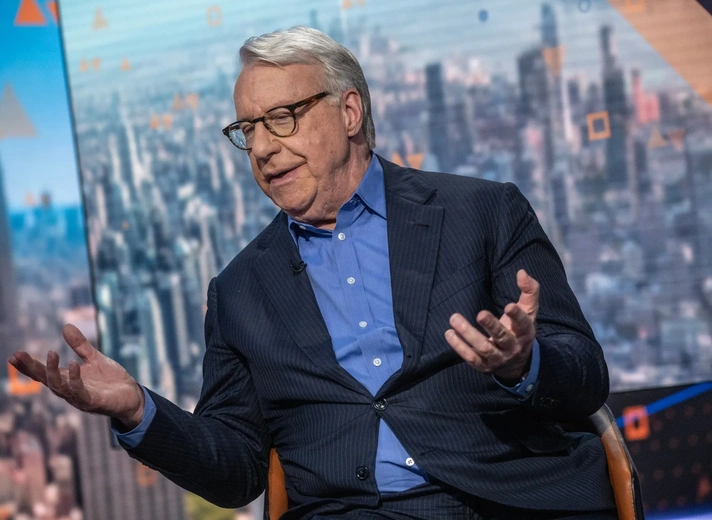Two of Wall Street’s biggest names find themselves locked in a dispute that may determine the fate of Bitcoin’s integration into corporate treasuries.

On one side is Michael Saylor, the executive chairman of Strategy (formerly MicroStrategy), and one of the most committed public evangelists for Bitcoin. On the other is Jim Chanos, the famed short-seller who became famous for calling out the now-defunct energy giant, Enron, before its collapse in 2001.
Saylor, for his part, converted his software firm in 2020 into an investment vehicle to purchase and hold Bitcoin. And in the past year, he has orchestrated a series of financial maneuvers to fund this buying spree.
Strategy's position
This has given Strategy a market capitalization of $109 billion, with its stash of 582,000 Bitcoin, valued at $63 billion, making it the world’s largest corporate holder.
“Financial gibberish”
Chanos calls the dollar value difference between Strategy’s Bitcoin store and its market capitalization “financial gibberish.” In his view, the company must be valued solely on its Bitcoin holdings, not a valuation model which, in Chanos’ view, artificially inflates its stock price.
Saylor, on the other hand, claims Chanos is missing the point. He maintains that his firm provides unique, leveraged exposure to digital assets, and has suggested buybacks if its stock trades below the value of its Bitcoin reserves.
Bets Are On
As corporate interest in Bitcoin treasuries grows, whoever makes the correct call stands to drastically impact the future of corporate crypto. The legitimacy of an increasingly popular model: raise capital, buy Bitcoin, and let the market do the rest could face a test of whether Wall Street-style scrutiny can deflate the dreams of corporations that have moved to buy significant Bitcoin reserves.
Strategy has raised around $35 billion since 2024 to fuel its Bitcoin buying spree. That includes about $33 billion from selling common shares and convertible bonds, plus another $2 billion from preferred units issued more recently.
However, the valuation model used to justify sky-high premiums on their stock could be more fiction than finance, with ripple effects for investor confidence and market stability across the crypto space.
Financial Alchemy?
Chanos spoke to Bloomberg Television on 11 June, saying the way Strategy is being valued is divorced from reality, noting that while “Michael Saylor is a wonderful salesman” he still believes the company’s valuation is doomed.
“This is akin to saying my house that rose in value from $450,000 to $500,000 last year is not worth $500,000. It’s worth $1.5 million because it is worth $500,000 plus a 20 multiple on the $50,000 increase.”
Striking back at Chanos, Saylor told Bloomberg Television: “If the stock trades at a weak premium, we’re just going to sell the preferred. And if the stock rallies up, he’s going to get liquidated and wiped out.”
At its heart, this dispute is about the future of cryptocurrencies. Will the bubble burst? Or do they have value beyond being simply something to trade?







